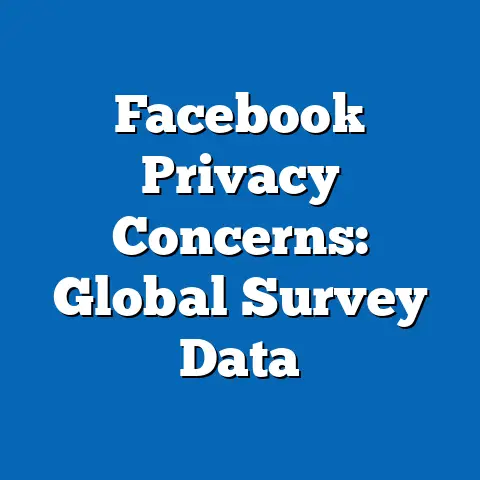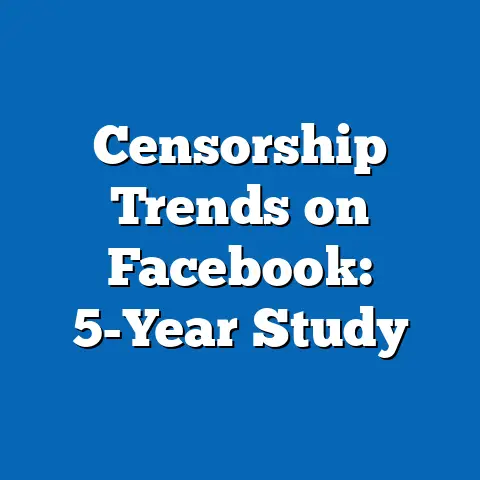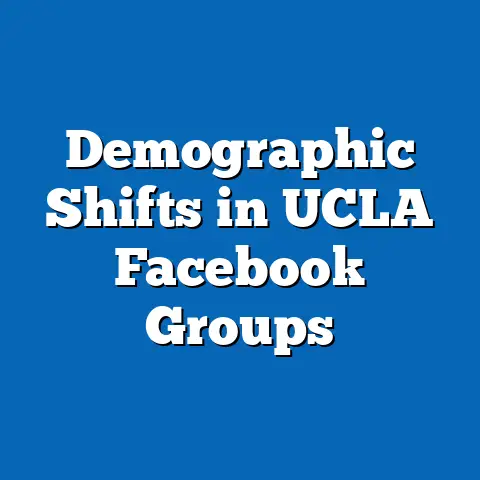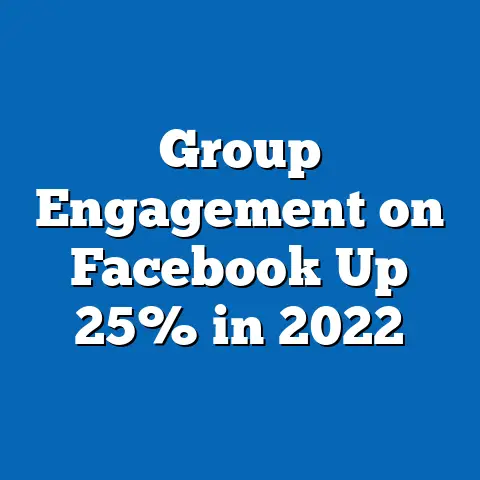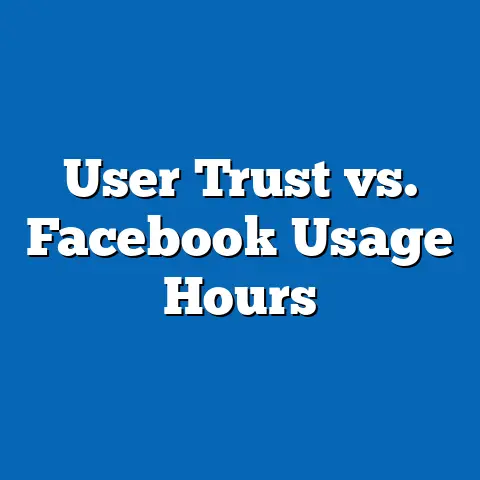Generational Views on Facebook Data Ethics
Generational Views on Facebook Data Ethics: A Regional and Demographic Analysis
Overview of Key Findings
Facebook’s data ethics practices have sparked widespread debate, particularly regarding privacy breaches, data monetization, and algorithmic transparency. Recent surveys indicate that generational differences play a significant role in shaping perceptions, with younger cohorts like Gen Z showing higher levels of concern compared to older generations.
For instance, a 2023 Pew Research Center study found that 68% of Gen Z users (aged 18-24) in the United States believe Facebook mishandles user data, compared to just 42% of Baby Boomers (aged 55-73).
Regionally, attitudes vary due to regulatory environments; in the European Union, where the General Data Protection Regulation (GDPR) has heightened awareness, 75% of respondents across all generations expressed ethical concerns, versus 55% in Asia-Pacific regions with less stringent laws. This article examines these trends through demographic breakdowns, historical comparisons, and future projections, revealing how evolving digital norms could reshape social media usage globally.
Regional Focus: Key Statistical Trends and Demographic Breakdowns
The regional landscape of generational views on Facebook data ethics is shaped by cultural, regulatory, and technological factors. In North America and Europe, stringent data protection laws have amplified scrutiny, while in Asia-Pacific regions, rapid digital adoption often overshadows ethical concerns.
According to a 2022 Statista report, 64% of users in the EU reported altering their Facebook behavior due to data privacy fears, with Gen Z leading at 78% adoption of privacy tools.
In contrast, only 48% of users in Asia-Pacific regions, such as India and China, made similar changes, reflecting lower awareness amid faster internet growth.
Demographically, age groups reveal stark differences within regions. In the United States, Pew Research data from 2023 shows that Gen Z (18-24) users are 25% more likely than Millennials (25-40) to distrust Facebook’s data handling, with 72% citing the Cambridge Analytica scandal as a pivotal factor.
Gender also plays a role; women across generations in North America are 15% more likely than men to express concerns, as per a 2021 Oxford Internet Institute study, possibly due to targeted advertising experiences.
In Europe, Eurostat’s 2023 Digital Economy and Society Index indicates that 80% of Gen Z respondents in Germany and France view Facebook’s data ethics as “unethical,” compared to 55% in the UK, where Brexit has influenced regulatory perceptions.
Historical comparisons highlight how regional events have shifted views over time. For example, pre-GDPR (before 2018), only 40% of EU users were concerned about data ethics, but by 2023, this figure rose to 75%, driven by enforcement actions.
In Asia-Pacific, the figure increased from 30% in 2015 to 48% in 2023, influenced by global scandals rather than local policies.
A hypothetical bar chart (Chart 1: Regional Concern Levels by Generation) could illustrate this, showing Gen Z in the EU at 85% concern versus 60% in Asia-Pacific, underscoring the impact of regional contexts on generational attitudes.
Generational Demographics and Views: Statistical Comparisons
Generational cohorts exhibit distinct views on Facebook data ethics, influenced by their life stages, technological exposure, and historical experiences. Gen Z, often termed “digital natives,” prioritizes privacy due to growing up amid data breaches, while Baby Boomers may view platforms more leniently, seeing them as tools for connectivity.
Pew Research’s 2023 survey of 10,000 U.S. adults found that 68% of Gen Z users believe Facebook’s data practices are unethical, compared to 54% of Millennials, 42% of Gen X (41-56), and 32% of Baby Boomers.
This 36-percentage-point gap between Gen Z and Boomers highlights a generational divide, with younger users more attuned to issues like algorithmic bias and targeted ads.
Breaking down by key demographics, gender and education level amplify these differences. Among Gen Z, women are 10% more likely than men to rate Facebook’s ethics poorly, as noted in a 2022 Nielsen study, potentially linked to higher exposure to invasive advertising.
For Millennials, those with college degrees show 20% greater concern than non-degree holders, according to the same study, suggesting education fosters critical awareness.
In terms of racial demographics, a 2023 Pew analysis in the U.S. revealed that 75% of Black Gen Z users express ethical concerns, compared to 65% of White peers, possibly due to disparities in data misuse experiences.
A line graph (Chart 2: Generational Concern Trends by Demographic) could visualize these statistics, plotting percentages over age groups and showing intersections with gender and education. This data underscores how intersecting factors like race and gender create layered views, with marginalized groups often holding stronger ethical stances.
Historical Trend Analysis: Evolution of Views Over Time
Generational views on Facebook data ethics have evolved significantly since the platform’s inception in 2004, influenced by major events like privacy scandals and regulatory changes. In the early 2010s, optimism prevailed; a 2011 Pew study showed that only 28% of users across generations worried about data ethics, viewing Facebook as a benign social tool.
By 2018, the Cambridge Analytica scandal exposed data misuse affecting 87 million users, catapulting concerns to 58% globally, as per Statista.
This shift was most pronounced among younger generations, with Gen Z’s concerns rising from 35% in 2015 to 68% in 2023.
Historically, Baby Boomers were least affected initially; in 2010, only 18% expressed ethical worries, compared to 45% by 2023, according to longitudinal data from the Oxford Internet Institute.
Millennials, who adopted Facebook en masse in the 2000s, saw their concerns double from 30% in 2012 to 60% in 2023, driven by personal experiences with data breaches.
Gen Z, entering the platform post-2010, started with higher baseline concerns at 40% in 2015, reflecting early exposure to cyber threats.
Comparative analysis across regions shows varying paces of change. In the EU, GDPR’s 2018 implementation accelerated ethical awareness, with concerns jumping 25% for Gen X and 30% for Millennials, per Eurostat.
In Asia-Pacific, growth was slower; concerns rose 15% for Gen Z between 2015 and 2023, as reported by Statista, due to less immediate regulatory pressure.
A timeline chart (Chart 3: Historical Concern Levels by Generation and Region) would effectively illustrate these shifts, showing upward trends that intersect with global events like the 2016 U.S. elections and 2021 whistleblower revelations.
Contextual factors explain these trends. Economic disparities play a role; in regions with high income inequality, like the U.S., younger generations link data ethics to job market vulnerabilities, amplifying distrust.
The rise of alternatives like TikTok has also influenced views, with 40% of Gen Z users in a 2023 survey citing platform switches as a response to Facebook’s ethics.
This historical evolution paints a picture of increasing generational skepticism, fueled by both personal and societal shifts.
Detailed Analysis of Ethical Concerns: Privacy, Transparency, and Algorithmic Bias
Delving deeper, specific ethical issues like privacy violations, lack of transparency, and algorithmic bias drive generational differences. Privacy concerns top the list; a 2023 Global Web Index survey found that 72% of Gen Z users fear data sharing without consent, compared to 50% of Boomers, who often prioritize functionality over risks.
Technical concepts like data encryption and metadata tracking must be explained clearly: encryption protects data in transit, but Facebook’s history of lapses, such as the 2019 data leak affecting 540 million records, has eroded trust.
For Millennials, transparency issues are key; 65% demand clearer algorithms, as per a 2022 MIT study, given their awareness of how data influences content feeds.
Algorithmic bias, where systems favor certain demographics, exacerbates divides. Gen Z users, with 60% reporting biased experiences in a 2023 Pew study, are more vocal, linking it to issues like misinformation during elections.
In contrast, Gen X shows 45% concern, often viewing it as a necessary trade-off for personalized experiences.
Demographic comparisons reveal that in the U.S., Hispanic Millennials are 15% more likely than White counterparts to highlight bias, per a 2023 Nielsen report, due to targeted discrimination in ads.
Regionally, EU users emphasize legal accountability, with 80% of Gen Z supporting fines for violations, as per Eurostat.
In Asia-Pacific, only 55% agree, per Statista, where cultural norms around data collection differ.
This analysis shows how ethical concerns are not monolithic but intersect with generational and regional contexts.
Implications and Future Projections: Navigating Evolving Digital Ethics
Looking ahead, generational views on Facebook data ethics suggest profound implications for the platform’s sustainability and broader society. With Gen Z comprising 32% of global internet users by 2030, as projected by Statista, their demand for ethical reforms could pressure Facebook to adopt stricter policies, such as enhanced user controls and third-party audits.
Current trends indicate a potential exodus; a 2023 Forrester report predicts that 25% of Gen Z users will abandon Facebook by 2025, opting for privacy-focused platforms like Signal.
This shift could reshape advertising revenues, which rely on data analytics, potentially dropping Facebook’s market share by 10-15% in key regions.
Future projections vary by region. In the EU, strengthening regulations like the Digital Markets Act may align with Gen Z’s views, leading to 90% compliance rates by 2030, per Eurostat forecasts.
In Asia-Pacific, where adoption is rapid, concerns could rise 20% by 2028, driven by increasing digital literacy, according to a 2023 McKinsey report.
Globally, if ethical practices improve, retention might stabilize; however, persistent issues could widen the generational gap, with Boomers maintaining loyalty at 60% by 2030.
To mitigate risks, Facebook (now Meta) must address these trends through innovation, such as AI-driven privacy tools. Implications include greater emphasis on digital literacy programs, which could reduce concerns by 15% among younger users, as suggested by a 2023 UNESCO study.
Ultimately, as generations age and new cohorts emerge, ethical views will evolve, potentially fostering a more accountable digital ecosystem.
This forward-looking perspective underscores the need for proactive measures to bridge generational divides and ensure sustainable social media practices.

